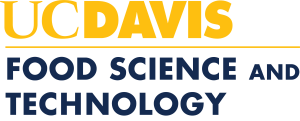COURSE GOALS: The objectives of this course are (1) to familiarize graduate students with systems approaches and metrics for quantifying the sustainability of food products, (2) to explore key topics, technologies, practices, and assessment tools for sustainable water, energy, and waste management in food processing, and (3) to study the roles and interactions between policy, technology, suppliers and consumers to enable more sustainable food systems.
COURSE FORMAT: Two 90-minute lectures per week. The course consists of formal lectures followed by interactive discussion of the topic addressed in the lecture. Students are given selected research and review articles to read before each segment of the course. Knowledge is acquired from lectures, reading and discussion. Grades based on participation in the classroom (20%), two problem sets (20%), two writing assignments (20%), and a final project (40%).
TOPICAL OUTLINE:
- Systems approach to sustainability and industrial ecology in food systems
- The food-water-energy nexus
- Combined heat and power, including waste heat recovery in other food processing operations
- Wastewater and solid food waste management
- Policy and technology solutions for improved sustainability
- Consumer decisions and connections to food system sustainability
